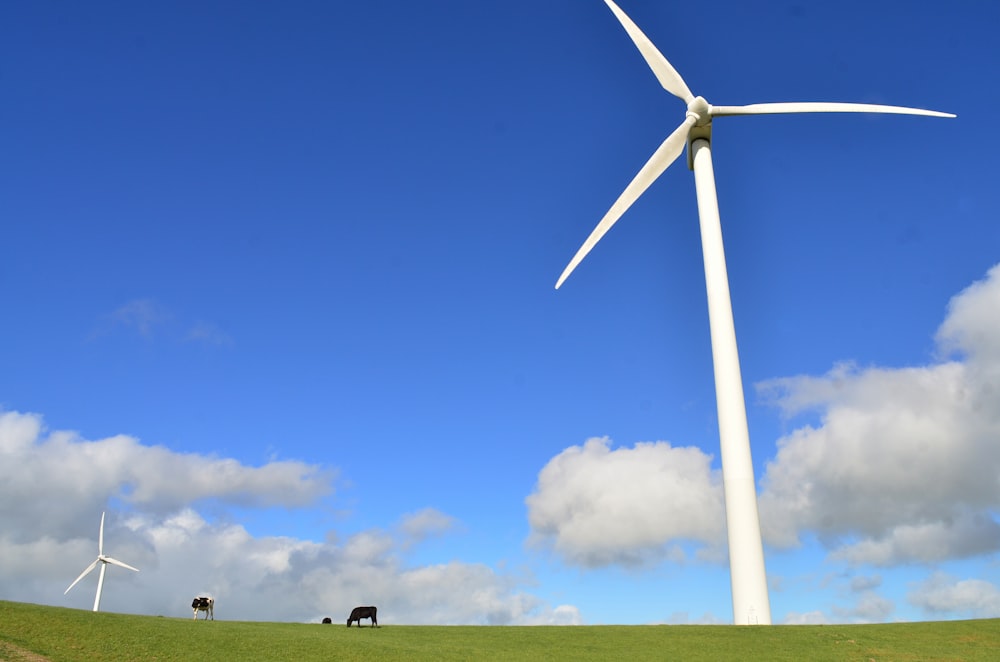
Harnessing Wind Turbine Power A Renewable Energy Solution
Harnessing Wind Turbine Power: A Renewable Energy Solution
Unleashing Nature’s Power
Wind turbine power stands as a beacon of innovation in the realm of renewable energy. Harnessing the raw power of the wind, wind turbines have emerged as a sustainable solution for generating electricity and reducing dependence on fossil fuels. With their towering blades slicing through the air, wind turbines symbolize humanity’s ability to tap into nature’s abundant resources and pave the way for a cleaner, greener future.
The Mechanics of Wind Turbines
At the heart of wind turbine power lies a sophisticated mechanism designed to capture and convert kinetic energy into electricity. Wind turbines consist of three main components: the tower, the blades, and the nacelle. The tower serves as the backbone of the turbine, supporting the blades and housing the machinery that converts wind energy into electrical power. The blades, resembling giant propellers, capture the force of the wind and rotate, driving the rotor attached to the nacelle. Within the nacelle, a gearbox and generator work together to convert the rotational energy of the rotor into electrical energy, which is then transmitted to the grid for distribution.
Harnessing the Wind’s Energy
The efficiency of wind turbine power relies heavily on the location and design of the turbines themselves. Wind farms are strategically situated in areas with consistent and strong wind patterns, such as coastal regions, plains, and mountain passes. The height of the turbine tower and the length of the blades also play a crucial role in maximizing energy production. Taller towers allow turbines to capture higher wind speeds, while longer blades increase the swept area and capture more wind energy. By harnessing the wind’s energy in optimal conditions, wind turbines can generate significant amounts of electricity and contribute to a more sustainable energy mix.
Environmental Benefits of Wind Energy
One of the most compelling aspects of wind turbine power is its environmental benefits. Unlike fossil fuel-based power plants, wind turbines produce electricity without emitting greenhouse gases or other harmful pollutants. By displacing fossil fuel-based generation, wind energy helps reduce carbon emissions and mitigate the impacts of climate change. Additionally, wind energy has minimal water consumption requirements compared to conventional power plants, making it a more sustainable option in water-stressed regions. With its low environmental footprint and high energy yield, wind turbine power represents a win-win solution for both the planet and its inhabitants.
Economic Implications of Wind Power
Beyond its environmental benefits, wind turbine power also carries significant economic implications. Wind energy projects create jobs, stimulate economic growth, and attract investment in local communities. From manufacturing and construction to operations and maintenance, the wind energy sector supports a wide range of skilled and unskilled employment opportunities. Moreover, wind energy can help diversify energy portfolios, reduce dependence on imported fuels, and stabilize electricity prices over the long term. By harnessing wind power, countries can strengthen energy security, foster economic development, and build resilience in the face of global energy challenges.
Overcoming Challenges and Barriers
Despite its many advantages, wind turbine power faces challenges and barriers to widespread adoption. One of the primary challenges is intermittency, as wind energy generation is dependent on weather conditions and fluctuates throughout the day. To address this challenge, grid operators must integrate wind energy into the existing energy infrastructure and develop storage and backup solutions to ensure a reliable power supply. Additionally, concerns about visual impact, noise pollution, and wildlife impacts can present obstacles to the development of wind energy projects, requiring careful planning, stakeholder engagement, and environmental mitigation measures.
Technological Innovations in Wind Energy
Technological innovations continue to drive advancements in wind turbine power, making wind energy more efficient, reliable, and cost-effective. From advancements in blade design and materials to improvements in turbine control systems and predictive maintenance technologies, the wind energy industry is constantly evolving. Offshore wind technology, in particular, holds immense potential for unlocking new wind resources and expanding the reach of wind energy into deeper waters and coastal regions. By investing in research and development, the wind energy sector can overcome technical challenges and further enhance the performance and competitiveness of wind turbine power.
The Role of Policy and Regulation
Policy and regulation play a crucial role in shaping the growth and development of wind turbine power. Government incentives, subsidies, and renewable energy targets can incentivize investment in wind energy projects and create a favorable market environment for developers. Similarly, regulatory frameworks for permitting, land use, and grid integration can streamline project development and facilitate the deployment of wind energy infrastructure. By implementing supportive policies and regulations, policymakers can accelerate the transition to renewable energy and unlock the full potential of wind turbine power.
Embracing Wind Energy for a Sustainable Future
As the world grapples with the urgent need to address climate change and transition to a sustainable energy future, wind turbine power stands as a beacon of hope. By harnessing the inexhaustible power of the wind, we can reduce carbon emissions, create jobs, and build resilient, thriving communities. Embracing wind energy requires collective action, collaboration, and commitment from governments, businesses, communities, and individuals alike. Together, we can harness the power of the wind to create a cleaner, greener world for generations to come.



